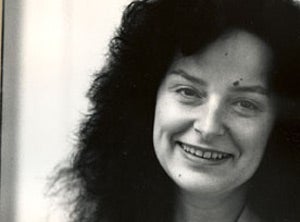Honeypot: The startling story of the killer in heels
A new play about a female Mossad agent exposes the use of the 'honeytrap' in the Middle East, says its author, Julia Pascal

She was tall, blonde and Swedish. The kind of woman who has known the adoration of men since adolescence. "Susanne" was in her fifties when I met her in Israel. She was Ingrid Bergman and Liv Ullmann. I never guessed she was a Jew. Her atmosphere was sensuality and mystery. But, when I heard she had been a Mossad agent and a honeypot, I started asking questions.
The whispers from friends were that she had used her beauty as a tool to seduce Arab terrorists and kill them as they slept.
It was easy to see her appeal to Mossad. The stereotype shiksa is a blonde with no traditional semitic traits. Susanne had been a Swedish Protestant who converted to Judaism. When we met in the late 1980s, she had retired. She spoke to me about her reasons for joining Mossad. Learning about the Holocaust had traumatised her childhood. Watching footage of concentration camp survivors made her identify with the victims. This provoked her to go to Israel and be part of the struggle for the country's survival.
Susanne was part of Golda Meir's Operation Wrath of God in which teams of agents hunted down the members of the Palestinian group Black September responsible for assassinating 11 Israeli athletes at the 1972 Munich Olympics. Steven Spielberg's movie Munich partially explored these acts of revenge but no stage writer has yet portrayed how women were used in this dangerous operation.
The media picked up on Mossad's techniques in 1986 when Mordechai Vanunu exposed Israel's nuclear capacity to the press. Vanunu was seduced by agent "Cindy" in London. She promised him erotic nights in Italy, but he was arrested by Mossad at Rome airport. At this time, Mossad, in common with most espionage agencies, continued to use honeypots. Tzipi Livni, current leader of Israel's opposition, worked for Mossad in Paris during the 1980s when my play is set. What she did is unknown.
The horror of the 1972 attack is still in Jewish memory. Abu Daoud masterminded these massacres. He claimed that the operation was financed by Mahmoud Abbas, now President of the Palestinian Authority. When Daoud died naturally in 2010, Abbas sent his condolences to the family. There has been no denial of this link.
Why is Honeypot relevant today? In London excitement is building for next summer's Olympics. But does the shadow of Munich remain in the collective memory? Newsreels from 1972 reveal that the Munich murders were an embarrassment to the Germans and the Olympic Committee who stopped the Games for only half a day. Requests by Israel for an official commemoration of the killings have continually been denied. I doubt if the London Organising Committee will honour the memory of the Israeli athletes.
The political mood has changed since 1972, but does the shadow of the Holocaust and Munich still leave a sense of unease? After all, the 1972 Games were also an act of resistance to Hitler's 1936 Munich Olympics as well as proof of Germany's improved post-Holocaust relationship with Israel.
Today Israel experiences its first anti-government demonstrations. All over the Arab world, there is a seismic shift. Internationally there is a guarded sense of optimism. The prospect of a Palestinian state allows many Israelis the possibility of an equal negotiating partner where land can be exchanged for peace.
Within this current political debate, Honeypot connects past and present through a dramatic exploration of one woman's journey into the Middle East revenge cycle. The real Susanne, who inspired me, died four years ago. Her legacy, like that of Abu Daoud, Golda Meir and Mahmoud Abbas, provokes disturbing questions around identity and violence. Questions which refuse to disappear.
'Honeypot', New Diorama Theatre, London NW1 (020 7383 9034) 12 to 30 October
Join our commenting forum
Join thought-provoking conversations, follow other Independent readers and see their replies
35Comments